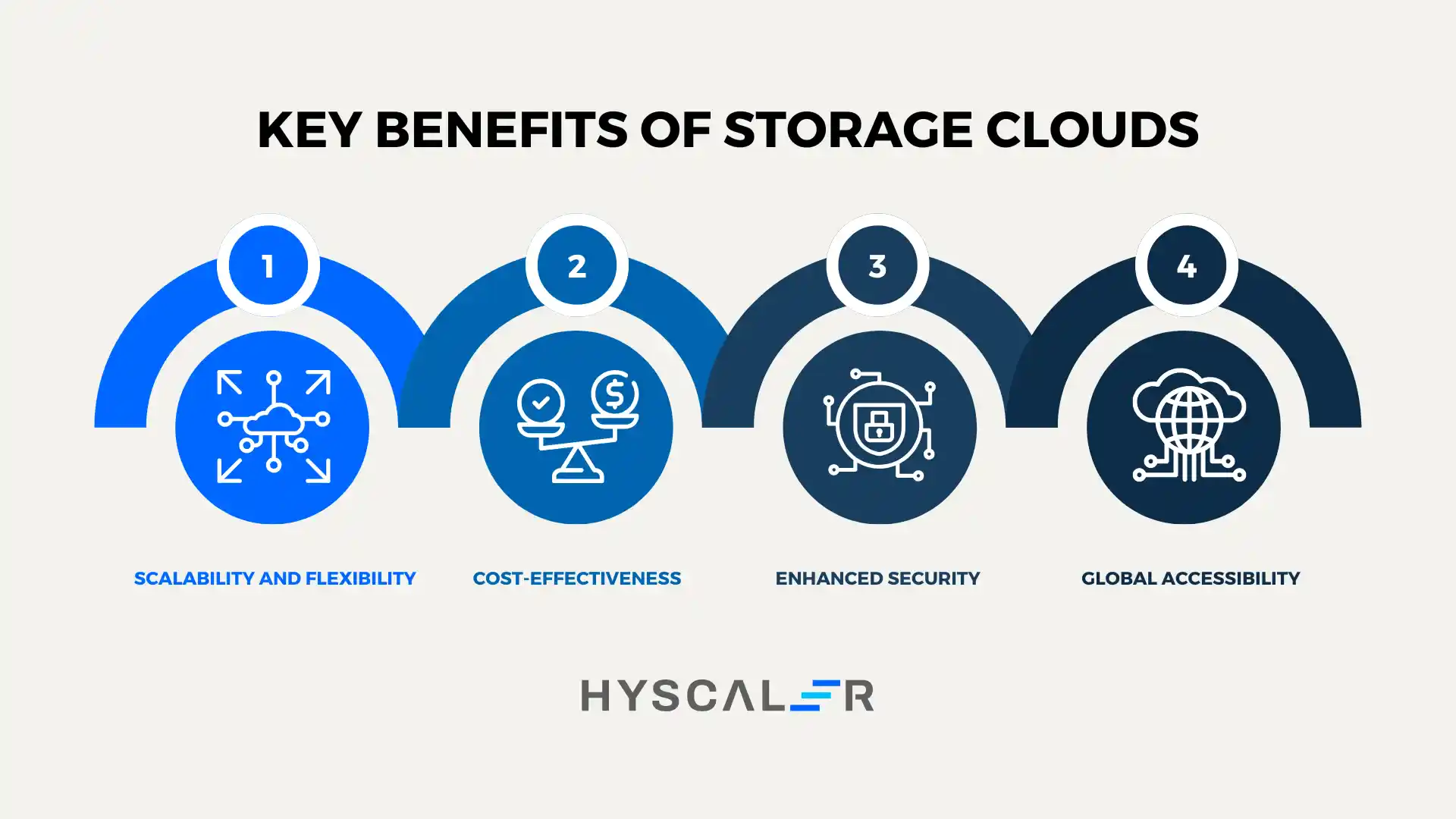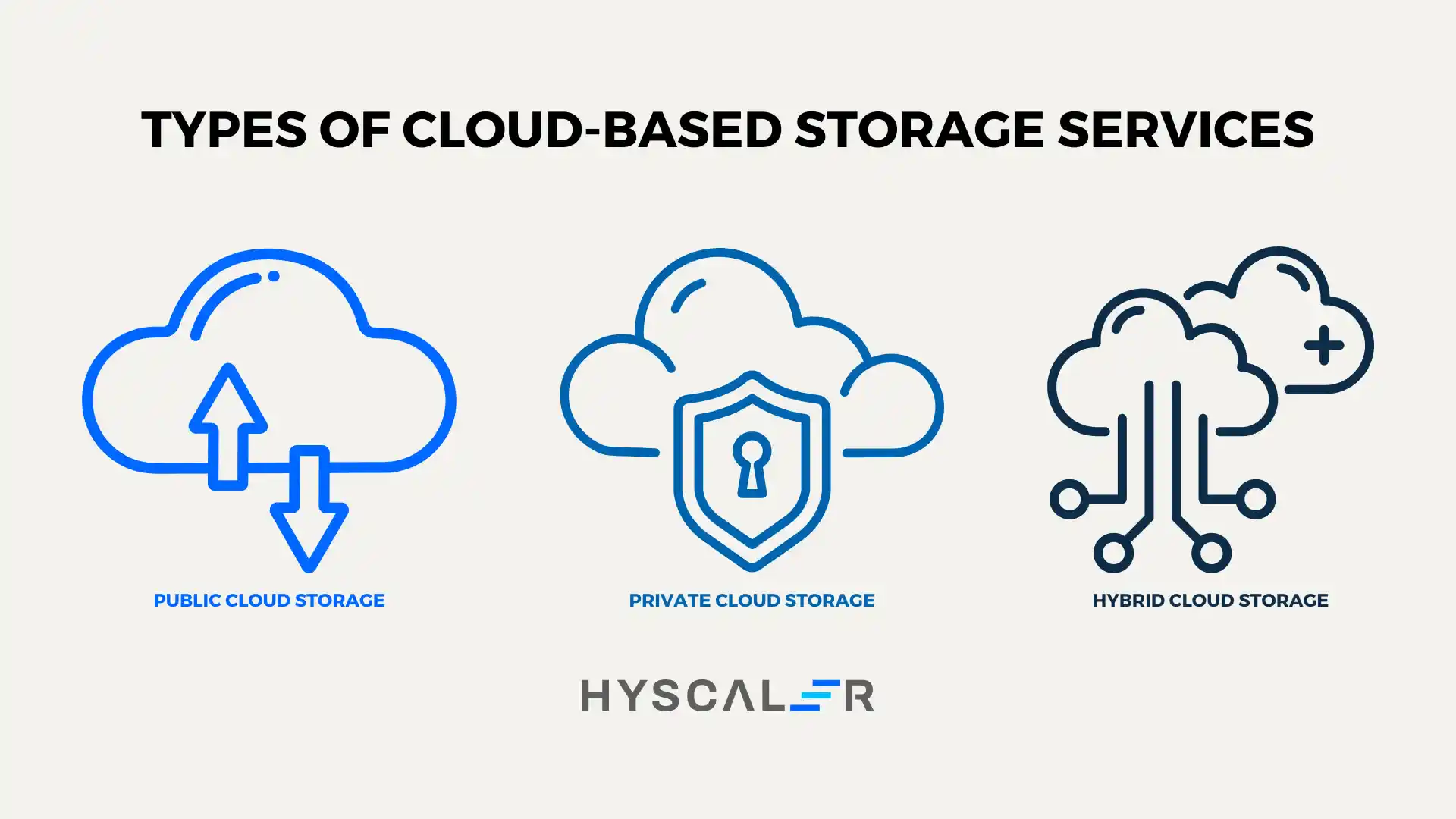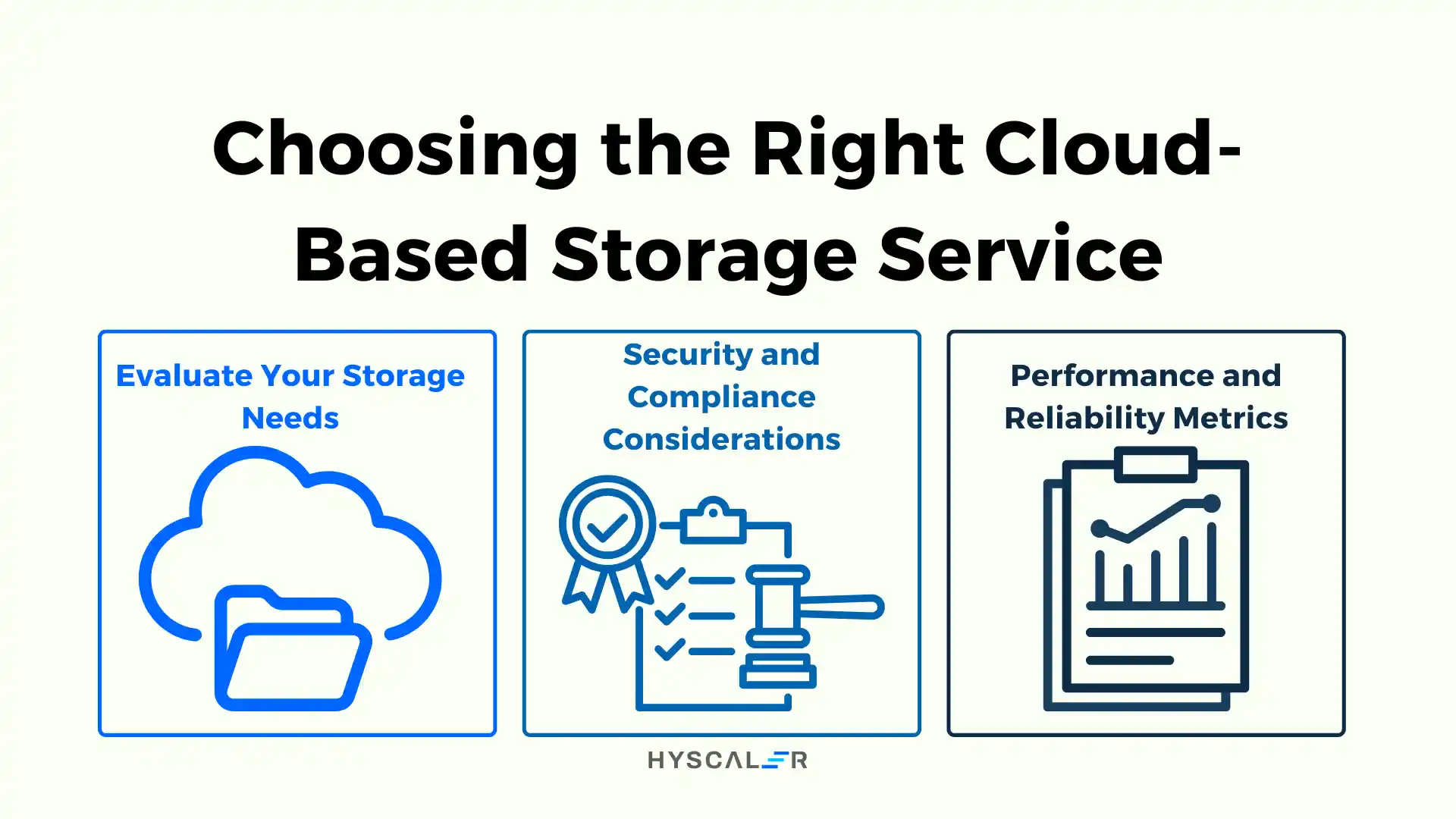Table of Contents
Memory in the olden days used to be low, but it was easily sufficient for us. Even with Gigabytes of data, a common user requires a terabyte of data storage.
In an enterprise-scale environment, GBs and TBs are not sufficient. Businesses and individuals alike are generating unprecedented amounts of data.
The traditional methods of storing information on physical hard drives and local servers are quickly becoming obsolete.
Enter the cloud-based storage service – a revolutionary solution that’s transforming how we store, access, and manage our digital assets.
What is a Cloud-Based Storage Service?

A cloud-based storage service is a digital platform that allows users to store, manage, and access their data through internet-connected remote servers.
Unlike traditional storage methods, these services provide scalable, flexible, and cost-effective solutions for data management needs ranging from personal file backup to enterprise-level data warehousing.
The Evolution of Cloud Data Storage
The concept of cloud data storage has evolved dramatically over the past decade.
What started as simple file hosting has transformed into sophisticated ecosystems offering:
- Real-time synchronization across multiple devices
- Advanced security protocols with end-to-end encryption
- Collaborative features for team productivity
- Automated backup solutions for data protection
- Integration capabilities with business applications
Key Benefits of Storage Clouds

1. Scalability and Flexibility
Storage clouds offer unparalleled scalability, allowing users to increase or decrease their storage capacity based on current needs.
Whether you’re a startup requiring minimal storage or an enterprise managing petabytes of data, cloud-based storage services can adapt to your requirements.
2. Cost-Effectiveness
Traditional on-premises storage requires significant upfront investments in hardware, maintenance, and IT personnel.
Cloud data storage operates on a pay-as-you-use model, dramatically reducing capital expenditure while providing predictable operational costs.
3. Enhanced Security
Modern cloud-based storage services implement multiple layers of security, including:
- Data encryption in transit and at rest
- Multi-factor authentication
- Regular security audits and compliance certifications
- Automated threat detection and response
4. Global Accessibility
With storage clouds, your data is accessible from anywhere with an internet connection.
This global accessibility enables remote work, international collaboration, and seamless business continuity.
Types of Cloud-Based Storage Services

Public Cloud Storage
Public storage clouds are operated by third-party providers and shared among multiple users.
Popular examples include:
- Google Drive – Seamless integration with Google Workspace
- Dropbox – User-friendly interface with robust sharing features
- Microsoft OneDrive – Deep integration with the Microsoft Office suite
- Amazon S3 – Enterprise-grade storage with extensive API support
Private Cloud Storage
Private cloud data storage provides dedicated infrastructure for a single organization, offering enhanced control and security.
This option is ideal for businesses with strict compliance requirements or sensitive data handling needs.
A private space means data won’t flow outside of your designated personnel, thus preventing data leaks, which can happen in Public Cloud Storage.
Hybrid Cloud Storage
Hybrid solutions combine public and private storage clouds, allowing organizations to optimize costs while maintaining control over critical data.
This approach provides the flexibility to store less sensitive data in public clouds while keeping confidential information in private environments.
Relevant data that a user needs can be provided to the user while maintaining full control of confidential data.
Choosing the Right Cloud-Based Storage Service

Evaluate Your Storage Needs
Before selecting a cloud-based storage service, assess your specific requirements:
- Storage Volume: Determine current and projected storage needs
- Access Patterns: Consider how frequently you’ll access stored data
- Performance Requirements: Evaluate speed and latency needs
- Integration Needs: Identify required connections with existing systems
- Budget Constraints: Establish clear cost parameters
Security and Compliance Considerations
When evaluating storage clouds, prioritize providers that offer:
- Industry-standard encryption protocols
- Compliance with relevant regulations (GDPR, HIPAA, SOX)
- Regular security assessments and certifications
- Transparent data handling policies
Performance and Reliability Metrics
Look for cloud data storage providers offering:
- High uptime guarantees (99.9% or higher)
- Fast data transfer speeds
- Low-latency access
- Robust disaster recovery capabilities
Best Practices for Cloud Data Storage
1. Implement a Data Governance Strategy
Establish clear policies for data classification, access controls, and retention periods.
This ensures your cloud-based storage service deployment aligns with business objectives and regulatory requirements.
2. Regular Backup and Recovery Testing
Even with reliable storage clouds, maintain regular backup schedules and test recovery procedures to ensure data integrity and business continuity.
In case of unexpected events, you will be prepared with solutions, as your data will be secured even if the original is accidentally deleted.
3. Monitor Usage and Costs
Implement monitoring tools to track storage usage, access patterns, and costs.
This visibility helps optimize your cloud data storage investment and identify potential issues early. The gap between monitoring and actual optimization is bigger than most teams realize. According to one infrastructure management analysis, organizations with mature cloud financial practices save 20–30% compared to those taking an ad-hoc approach, mostly by catching underutilized instances and misallocated storage tiers before the bills stack up.
4. Train Your Team
Provide comprehensive training on your chosen cloud-based storage service to maximise adoption and ensure secure usage practices across your organisation.
Data flow will be smooth, making it easy to handle data leaks or deletion.
Future Trends in Storage Clouds
The cloud storage industry continues to evolve with emerging technologies:
Artificial Intelligence Integration
AI-powered features are becoming standard in modern storage clouds, offering automated data classification, intelligent archiving, and predictive analytics for storage optimization.
Edge Storage Solutions
As IoT devices proliferate, edge storage integration with traditional cloud data storage is becoming crucial for reducing latency and improving performance.
Enhanced Security Features
Zero-trust security models and advanced threat detection capabilities are becoming standard features in enterprise-grade cloud-based storage services.
Making the Transition to Cloud Storage
Migration Planning
Successful migration to storage clouds requires careful planning:
- Data Audit: Catalog existing data and identify migration priorities
- Bandwidth Assessment: Evaluate network capacity for data transfer
- Timeline Development: Create realistic migration schedules
- Risk Mitigation: Develop contingency plans for potential issues
Change Management
Implementing a new cloud-based storage service involves organisational change.
Focus on:
- Clear communication about benefits and changes
- Comprehensive training programs
- Gradual rollout to minimize disruption
- Ongoing support and feedback collection
Conclusion
The adoption of a cloud-based storage service is no longer optional for organizations seeking a competitive advantage in today’s digital economy.
Storage clouds offer unprecedented flexibility, security, and cost-effectiveness compared to traditional storage solutions.
Whether you’re considering cloud data storage for personal use or evaluating enterprise solutions, the key to success lies in understanding your specific needs, choosing the right provider, and implementing best practices for security and governance.
As technology continues to evolve, cloud-based storage services will undoubtedly play an increasingly critical role in how we store, access, and leverage data.
The organizations that embrace this transformation today will be best positioned to capitalize on tomorrow’s opportunities.
Ready to explore cloud storage options? Start by evaluating your current storage needs and researching providers that align with your specific requirements.
The future of data storage is in the cloud, and the time to make the transition is now.
FAQs
Which cloud storage is best for free?
Many cloud-based storage services provide free storage space; among them, Google Drive is the best, as every other user has an Android device, and it is integrated with every Google tool.
It gives you free storage of 15 GB, which can be upgraded to 100 GB for a price of 2$/month or 20$/year.
What is the best cloud storage service?
The best cloud-based storage service is the one that you can easily use across multiple platforms.
Some of these are:
1. Google Drive – It is easily available for free on every Android device and is integrated into the Google ecosystem.
2. Microsoft OneDrive – It is included in Microsoft 365 and can be accessed on multiple devices.
3. Apple iCloud – It is integrated with Apple products and is only good for Apple users.
Is a private cloud expensive?
Private Cloud Storage is quite expensive overall, as you require infrastructure like servers, coolers, data storage, etc.
What are the disadvantages of hybrid cloud storage?
Cons of Hybrid Cloud:
More maintenance – Requires in-house staff to manage and secure private cloud resources.
Higher cost – More expensive than public cloud, less suitable for smaller businesses.
Internet dependency – Outages can disrupt access to remotely stored data and business operations.
Why use cloud storage?
Cloud Storage frees up space for your device and provides you with connectivity to all your other devices.
How do I clear my cloud storage?
To clear your cloud storage, select the items you want to remove and select the delete option.
If you want to completely clear your cloud storage, then directly select the Clear all option.
What is the advantage of using a cloud-based storage service
The most useful advantage is that you can access your data from anywhere with any device, anytime. Apart from that, it is scalable, secure, and you can share specific data by giving access or sharing the link to the folder.
What is cloud storage?
Cloud storage is a digital platform that allows users to store, manage, and access their data through internet-connected remote servers.